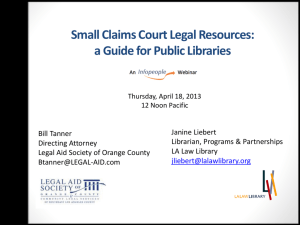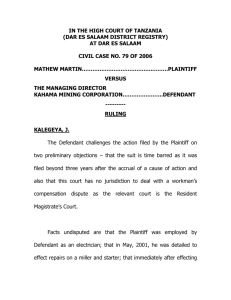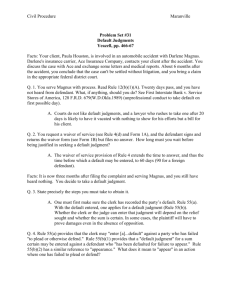1111530602_331429
advertisement
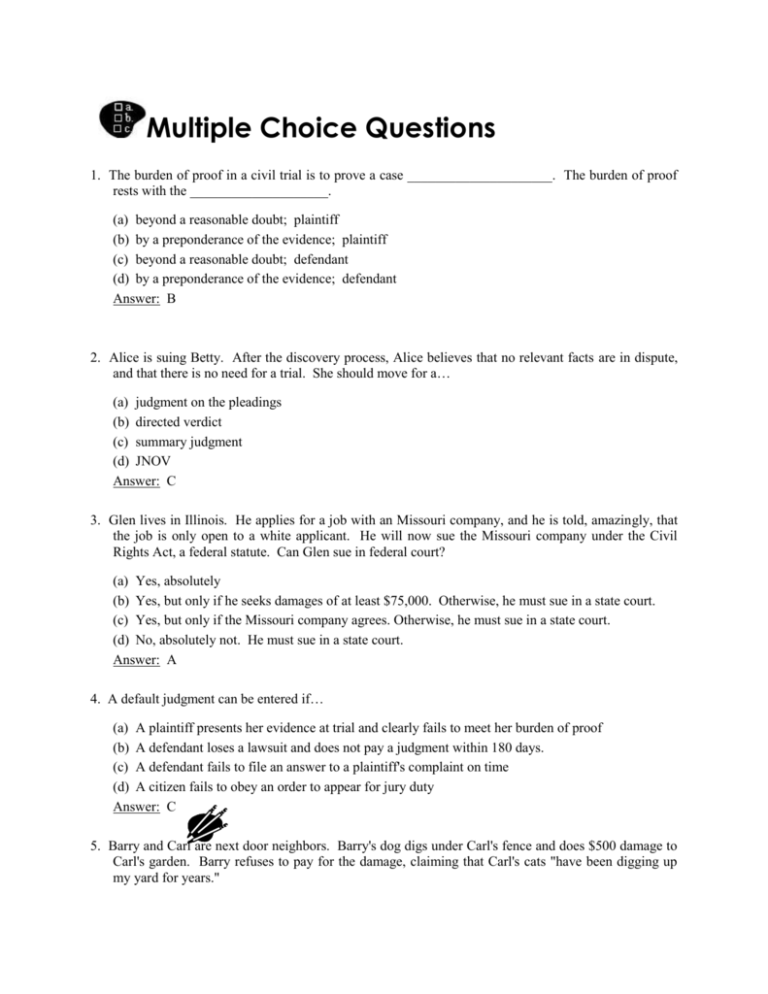
Multiple Choice Questions 1. The burden of proof in a civil trial is to prove a case _____________________. The burden of proof rests with the ____________________. (a) beyond a reasonable doubt; plaintiff (b) by a preponderance of the evidence; plaintiff (c) beyond a reasonable doubt; defendant (d) by a preponderance of the evidence; defendant Answer: B 2. Alice is suing Betty. After the discovery process, Alice believes that no relevant facts are in dispute, and that there is no need for a trial. She should move for a… (a) judgment on the pleadings (b) directed verdict (c) summary judgment (d) JNOV Answer: C 3. Glen lives in Illinois. He applies for a job with an Missouri company, and he is told, amazingly, that the job is only open to a white applicant. He will now sue the Missouri company under the Civil Rights Act, a federal statute. Can Glen sue in federal court? (a) Yes, absolutely (b) Yes, but only if he seeks damages of at least $75,000. Otherwise, he must sue in a state court. (c) Yes, but only if the Missouri company agrees. Otherwise, he must sue in a state court. (d) No, absolutely not. He must sue in a state court. Answer: A 4. A default judgment can be entered if… (a) A plaintiff presents her evidence at trial and clearly fails to meet her burden of proof (b) A defendant loses a lawsuit and does not pay a judgment within 180 days. (c) A defendant fails to file an answer to a plaintiff's complaint on time (d) A citizen fails to obey an order to appear for jury duty Answer: C 5. Barry and Carl are next door neighbors. Barry's dog digs under Carl's fence and does $500 damage to Carl's garden. Barry refuses to pay for the damage, claiming that Carl's cats "have been digging up my yard for years." The two argue repeatedly, and the relationship turns frosty. Of the following choices, which has no outside decision maker and is most likely to allow the neighbors to peacefully coexist after working out the dispute? (a) Trial (b) Arbitration (c) Mediation Answer: C




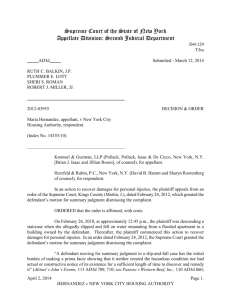
![[2012] NZEmpC 75 Fuqiang Yu v Xin Li and Symbol Spreading Ltd](http://s3.studylib.net/store/data/008200032_1-14a831fd0b1654b1f76517c466dafbe5-300x300.png)

